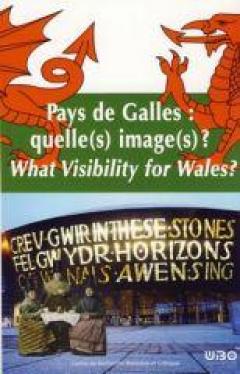Translating not always a good thing – the Welsh experience

The increasing availability of simultaneous translation is killing Welsh in its heartland according to Dr Richard Glyn Roberts of the School of Gaelic and Celtic Studies, University College Dublin.
Dr Roberts's opinion, voiced at an International and Multidisciplinary Conference on Contemporary Wales at Brest University on January 25, 2007, and now published in “Pays de Galles : quelle(s) image(s)? What Visibility for Wales? by the Centre de Recherche Bretonne et Celtique, Université de Bretagne Occidentale, Brest, is attracting much interest in Wales.
Dr Roberts in his paper “Réflexions sur une égalité superficielle : la traduction au pays de Galles” cites an occasion when he was asked to provide simultaneous translation at a conference of health professionals – nine were Welsh speakers and nine were not. Yet he was never once called upon to translate. “Welsh speakers speak English as fluently, or nearly as fluently, as the non-Welsh speakers, and they feel frustrated at being obliged to speak via an interpreter,” he says.
“It becomes more and more difficult to conduct official business and to organise cultural activities in the Welsh language without being constrained to offer an interpretation service in English.”
He goes on to argue that efforts to gain the support of the non-Welsh speakers are eroding the social status of the Welsh language in its own heartlands. “Bilingualism in the form of simultaneous translation maintains the status quo in favour of English speakers … worse, it encourages the promotion of the English language in the few areas where Welsh has been predominant until now.” Again, English speeches or contributions are never translated into Welsh.
The growth of translation services in Wales is an interesting development. I am told that there is at least one translations millionaire. I can confirm that free-lance translating can be quite lucrative.
I have occasionally been asked to translate conference documents into Welsh for friends of friends who need the work done instantly and their usual translator is not available. Once I was asked to provide translations for a pile of documents by 9am the following morning. I duly received the material at about 8 pm and set to work.
I finished about 6 am. It was for a friend of a friend, so I asked to be paid the standard rate – no extra allowance for the inconvenience or the urgency of the work. I was pleasantly shocked when the cheque eventually arrived. I have received less money for books that have taken me months, years even, to write!
What concerns me is that a lot of very clever young people are going into quite well paid jobs as translators when their talents would be better used elsewhere. Furthermore, we are finding fewer people in jobs of influence able to work in Welsh as well as English – indeed able to speak Welsh at all.
Some years ago I wrote an article about the paucity of Welsh speakers – indeed any Welsh people at all - in the field of arts administration. At the time I was told that none of the Welsh universities offered courses preparing young people for such work.
I have been involved with Welsh museums from time to time over the last fifteen years and surprised to find so few able to speak Welsh even in the Welsh speaking areas. Again I was told that Welsh universities did not offer courses suitably combining history and archaeology so that students could take up careers in the museums service.
As a result incomers from England with the necessary academic qualifications but no knowledge or sympathy for the character or the history of the places where they come to work. It is a career stepping-stone before returning to England. Some actually learn to speak Welsh quite well and for that we must feel thankful, but there remains the lack of a deep understanding of the communities they come to serve.
“We will get round the problem by providing a translation service” is how the authorities view the problem as they go ahead and appoint outsiders. Dreadful decisions have been made in Wales as a result of such appointments – an English appointee not so long ago was instrumental in the closure of the Wales Industrial and Maritime Museum in Cardiff and valuable collections were dispersed.
I remember a time when it was unthinkable that a Director of such an institution would not be a Welsh-speaking Welshman.
The mushrooming translations industry is making such appointments all the more likely. Dr Roberts has a valid point.
■